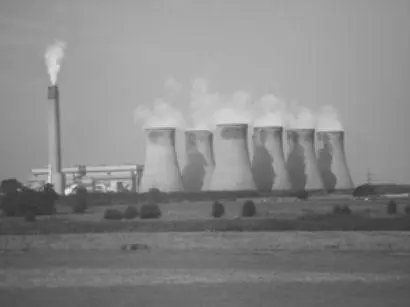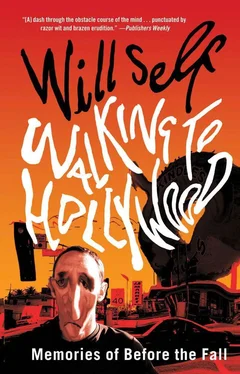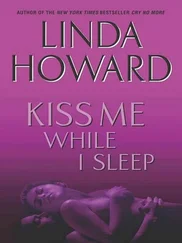Will Self - Walking to Hollywood
Здесь есть возможность читать онлайн «Will Self - Walking to Hollywood» весь текст электронной книги совершенно бесплатно (целиком полную версию без сокращений). В некоторых случаях можно слушать аудио, скачать через торрент в формате fb2 и присутствует краткое содержание. Год выпуска: 2011, Издательство: Grove/Atlantic, Inc., Жанр: Современная проза, на английском языке. Описание произведения, (предисловие) а так же отзывы посетителей доступны на портале библиотеки ЛибКат.
- Название:Walking to Hollywood
- Автор:
- Издательство:Grove/Atlantic, Inc.
- Жанр:
- Год:2011
- ISBN:нет данных
- Рейтинг книги:4 / 5. Голосов: 1
-
Избранное:Добавить в избранное
- Отзывы:
-
Ваша оценка:
- 80
- 1
- 2
- 3
- 4
- 5
Walking to Hollywood: краткое содержание, описание и аннотация
Предлагаем к чтению аннотацию, описание, краткое содержание или предисловие (зависит от того, что написал сам автор книги «Walking to Hollywood»). Если вы не нашли необходимую информацию о книге — напишите в комментариях, мы постараемся отыскать её.
Walking to Hollywood — читать онлайн бесплатно полную книгу (весь текст) целиком
Ниже представлен текст книги, разбитый по страницам. Система сохранения места последней прочитанной страницы, позволяет с удобством читать онлайн бесплатно книгу «Walking to Hollywood», без необходимости каждый раз заново искать на чём Вы остановились. Поставьте закладку, и сможете в любой момент перейти на страницу, на которой закончили чтение.
Интервал:
Закладка:
Passing between the glass cases full of earthenware and bronze anklets, I became aware of an eerie hissing sound and a woman muttering in a half-foreign tongue. Exactly at the moment I realized this must be a recording, I saw the lit-up glass case containing the late Bronze Age wooden figurines known — after the Holderness drainage ditch where they were discovered in 1836 — as the Roos Carr Figures.
As I read the information cards, and stared at the curious spindly men, carved from pine over 2,000 years previously, I found that my mind was racing — forward in time, back in time, circling my own lifetime, then plotting its curve on to the widening gyre of history itself — while my body was paralysed, drenched in sweat.
The pebble eyes inserted in the pinheads of the four figures that had been placed upright in the carved boat held me captive for long minutes, then released me to stagger into the mockup of an Iron Age village. The muttering was, as I suspected, a curator’s notion of proto-English, placed in the mouth of a manikin at a treadle. I stood gathering my wits for a while, under the cutaway thatch of a newly ancient hovel, until the staff member assigned to check the galleries were empty came past me. ‘Oh! You frightened me,’ she said, and then: ‘I suppose I should be used to it by now.’ It being, I supposed, the presence of live humans in among the instructional dummies.
Later on, I was approached after the reading by a man who told me that his wife had very much wanted to attend but was unable to do so because she was trapped in their house by a swarm of bees. It was a warm evening and it took us about ten minutes to walk there. The bees were densely clustered on the front door of the two-up, two-down, their translucent wings, gingery bodies and black extremities conveying an impression that this living micro-mosaic was but a detail of a far larger picture.
We went round to the back door and found his wife drinking gin with a friend in the kitchen, while clearly relishing her predicament. ‘I called the police hours ago,’ she said. ‘But they’ve not sent anyone yet.

I pictured the beekeepers who must be on stand-by during the swarming season; half dreading, half hoping that they would be called upon to go and twirl the living candyloss on to a stick, put it in a box, put the box in the back of a small van. The bespoke suit of tiny bodies agitating your skin… the galvanic stress of knowing they are about to poison you from every angle .
That night I ate in an empty Bengali restaurant. There were overhead strip-lights, and neon tubes rimmed the plate-glass windows. The tablecloth fluoresced beneath my sad hands as I ate far more chana masala than I’d intended. Later, my belly slopped in my dinkily awful room at the Royal, which was one of those hotels built into the wall of a station like the Grosvenor at London’s Victoria Station, or the Great Eastern at Liverpool Street. As a child the Grosvenor had entranced me; its fusty reception rooms and wide staircases seemed doubly interior — rooms inside a big building that was itself inside a bigger building. Yet Victoria, like the Paragon Station in Hull, was open to the elements, swirling with soot and pigeons, and so the hotels were perhaps only gatehouses between one world and the next.
In the predawn I awoke to crouch grimly for a rope-burn of an evacuation, then slept again, uneasily, and dreamt I was standing in the booking hall of the station, staring up through the oculus. I was aware of the tremendous emptiness of sky over sea, and, on stepping out through the main doors, I discovered not the expected thuggery of the shopping centre opposite, but the peninsula of Spurn Head tapering into the distance, its shingle, furze and sand a collage that had no relief or hue but lay Rat on the still Ratter sea. Just visible, at the very end of the spit, was a vapour trail such as you sometimes see streaming from the tip of an aircraft wing, or a Himalayan peak.
2. Static Homes
I left home at 7.00 a.m. on the Thursday, 24 July 2008. It had been a damp summer and, perversely, I was hoping for poor weather — a Hollywood rain of milky droplets to veil my departure, through which I could scuttle along shining pavements before burrowing into the tube. Down there, in the hypocaust of the city, warmed by the commuters’ foodybreath — well, it would be like relapsing into sleep once more; then, I’d reawaken to the sooty chill of King’s Cross, a space that no amount of renovation could ever rejuvenate.
Instead there was bright sunlight and butterflies clipped the flowering buddleia by the front gate with their bladethin wings. At the end of our block there was a pavement shrine: a score of cellophane-wrapped bouquets leant against the iron railings, the spikes of which were festooned with T-shirts, wristbands and laminated cards covered in rap poetry. Spreading out almost to the kerb were tea lights arranged to form the slogan I LOVE FREDDY. There were two or three brightly coloured plastic water guns propped among the shrivelled floral tributes, and as I passed by one of a pair of youths who were contemplating the shrine bent to touch a play weapon, while remarking to his companion, ‘’E turned ’is back an’ ven vay plunged ’im.’
I had with me a notebook and considered stopping to note this down — but then forgot all about it within yards. In the past, at the start of a journey, its pages would be blankly awaiting the obsessively tight stitching of my handwriting as I tried to sew observation to thought. But now it was already quite full of train times, the places I intended visiting and those where I was booked to stay; a detailed itinerary that was necessary, lest, from one hour to the next, I forgot why it was I had gone to East Yorkshire, where I hailed from — and so was lost entirely.
If I were to be found wandering, mute and disoriented, I wondered what my rescuer might make of those pages where, in anticipation of being unable to recall the right words or phrases, I had pre-emptively set out a multiple-choice list of alternative descriptions, thus:
Flamborough Head is: (a) impressive (b) windy and desolate (c) desolate and oppressive (d) a jolly place, what with the wheeling gulls and the trippers taking tea beneath a candy-striped lighthouse (e) with its humped back and baleen cliffs, suggestive of a beached leviathan.
There were also examples of credible self-knowledge that I could select from upon waking, either from sleep or an amnesiac spell, such as: (a) I dreamt of the lost children again — is there something I am repressing? (b) I have my father’s powerful self-absorption together with my mother’s fearful neurosis. (c) The anger I felt when the woman in the newsagent’s sniggered at me was qualitatively exactly the same as that I experienced aged eleven when teased because of my haircut. (d) Impotence can be a refuge. (e) There is no time left now — yet self-obsession is a dimension of its own.
All I had to do — or so I had convinced myself — was circle the appropriate letter and I would add another niblet of commentary to the great multi-and-no-faith Talmud. Yet, by the time I was sprawled on the chequerboard of sweaty plush, the scheme seemed at best unworkable — at worst futile. As the train pulled away from Victoria a recorded announcement intoned: ‘The next stop is Victoria, change here for District, Circle and Piccadilly lines and mainline rail services.’ At the time I thought it was a mistake.
The east coast line franchise had been won that summer by a company called Grand Central. The ends of the carriages bore blown-up photographs of Marilyn Monroe and James Dean; passengers — had there been any besides me — might have meditated on the desirability of self-murder and good looks, or else played upon the Monopoly and chess boards incorporated into the tables. As I say, the train was nearly empty, yet still it strained to achieve escape velocity, struggling through Camden Town and past Alexandra Palace before leaving the planetoid of London brick behind around Watford.
Читать дальшеИнтервал:
Закладка:
Похожие книги на «Walking to Hollywood»
Представляем Вашему вниманию похожие книги на «Walking to Hollywood» списком для выбора. Мы отобрали схожую по названию и смыслу литературу в надежде предоставить читателям больше вариантов отыскать новые, интересные, ещё непрочитанные произведения.
Обсуждение, отзывы о книге «Walking to Hollywood» и просто собственные мнения читателей. Оставьте ваши комментарии, напишите, что Вы думаете о произведении, его смысле или главных героях. Укажите что конкретно понравилось, а что нет, и почему Вы так считаете.












